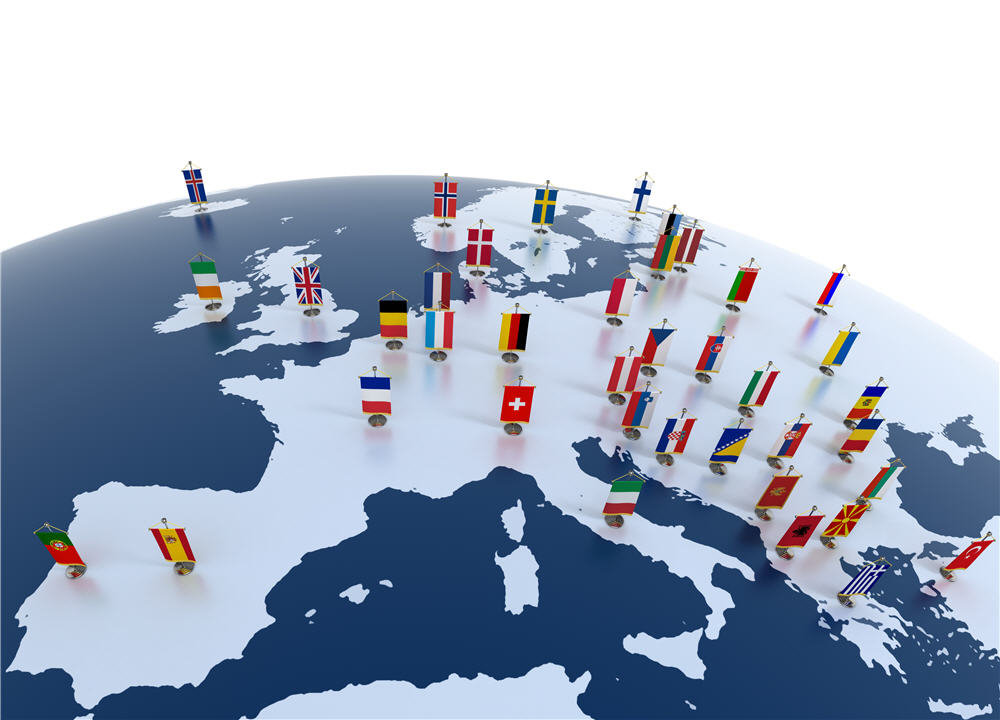Europe's return to twentieth century

TEHRAN - During the World Economic Summit in Davos, the Chancellor of Germany and the President of France both gave a significant warning about the return of nationalism and populism to Europe. This warning has been sent in a time when Far-Right movements in Europe have been able to gain unbelievable power and even seek to conquer a majority of parliaments and form governments.
In her speech, Angela Merkel emphasized that the twentieth century's mistake shouldn't be repeated. By this, the German Chancellor meant the tendency of European countries to nationalism. Although the German Chancellor warning was serious and necessary, the warning seems to be a little late. Perhaps it would have been better if the warning was forwarded after the European Parliamentary elections in 2014, and subsequently, more practical and deterrent measures were designed.However, Merkel and other European leaders ignored the representation of over a hundred right-wing extremist in the European Parliament in 2014 and merely saw it as a kind of social excitement.
This social excitement has now become a "political demand" in the West. The dissatisfaction of European citizens with their governments has caused them to explicitly demand the return to the twentieth century and the time before the formation of the United Europe.
The recent victories of right wing extremists in Austria, Germany and…, isn't merely the result of the nationalist movement success in introducing its principles and manifestos. But it is also a result of the failure of the "European moderation" policy to resolve social, security and economic problems in the Eurozone and the European Union. In such a situation, European citizens find that the solutions offered by the moderate left parties didn't work in removing the existing crises in Europe.
Obviously, in this situation "crossing the traditional parties" would become a general demand in the West. Under such circumstances, Merkel's and other European leaders' warnings about the return to the twentieth century and the time before the formation of the United Europe simply means the inability of the Eurozone authorities in preventing the Right-extremism in the West.
Speaking at the Davos summit, "Emanuel Macron" the French President warned of the victory of nationalists and extremists in Europe and said:
"In my country, if I do not make sense of this globalisation then in five, 10, 15 years time it will be the nationalists, the extremes which win -- and this will be true of every country."
The commonality of Merkel's and Macron's remarks is their concern about the return of European citizens to nationalism. As noted, this process has intensified in Europe. The extremist party of Freedom found way to the Austrian coalition government, and the increase in radical far-right votes in countries like France, Sweden and Germany, is a serious crisis in Europe. The recent warnings by the German Chancellor and the French President should therefore be seriously analyzed and evaluated.
It should be noted that now about 4 months have passed since the general election in Germany. During this period, due to the weakness of Christian parties, no coalition government has yet been formed. On the other hand, during the negotiations with the Green party and the Liberal Democrats, we also saw the defeat of Merkel and her companions. While news sources in Germany predicted that the Jamaica coalition would be formed between the four negotiating parties, the Liberal Democrat leader, "Christian Lindner", eventually left the negotiating table.
Merkel is in a difficult situation now. She knows well that the formation of a coalition government with the Social Democrats is the best possible option for her right now. Although this option has never been Merkel's favorite, but if the negotiations with the Social Democrats and people such as "Martin Schulz" and "Sigmar Gabriel" in forming a coalition government fail, Merkel would have to form a minimal government with the Green Party, or run an early election. In case of an early election, the political crisis will continue in Germany.
Meanwhile, in the event of failure of the Christian parties and Social-Democrats, general pressure on Merkel will increase to resign of her post as the German Chancellor.In such a situation, the Social Democrats will have a greater chance of being in power. More importantly, according to recent surveys conducted in Germany, more than 50 percent of German citizens believe that Merkel should step down and let other politicians to try their chance for this post.
Hence, the negotiations between the Christian parties and the Social Democratic Party over the formation of a coalition government (called the Great Coalition) is of great importance for Merkel. However, this rule isn't true of the Social-Democratic Party. During the recent general election and with about 20% of the vote, the Social Democratic Party has gained one of the weakest and most unexpected election results in recent decades.
The Social Democratic Party then announced it plans to serve as Merkel's opposition party and the coalition government. But the failure of the talks on the Jamaica coalition, has once again led the two traditional parties of the Christian Democrats and the Social Democrats to the negotiation table.
Merkel and the leaders of the Social-Democratic Party have already begun negotiations over the great coalition. However, there is a lot of opposition within the Social-Democratic Party. The agreement of a small number of representatives of the Social-Democratic Party with official talks over forming the great coalition, indicates that there is no positive view towards the formation of a coalition government with Merkel among this party's members.
In any case, Merkel now feels a strong need for the cooperation of Social Democrats and regards the coalition with this party as a way for her effective survival in Berlin. The same thing has made the Social-Democrats hands even more open in negotiating with the coalition of Christian parties.
